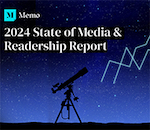 The New York Times was "insensitive" in its June 16 report about the balcony collapse in Berkeley, Calif., which killed five Irish students and a person with dual Irish-American citizenship, according to Margaret Sullivan, the paper's public editor.
The New York Times was "insensitive" in its June 16 report about the balcony collapse in Berkeley, Calif., which killed five Irish students and a person with dual Irish-American citizenship, according to Margaret Sullivan, the paper's public editor.
Adam Nagourney, Mitch Smith and Quentin Hardy reported the victims were working in the US as part of the J-1 visa program. They wrote the work-visa program has become "a source of embarrassment for Ireland, marked by a series of high-profile episodes involving drunken partying and the wrecking of apartments in places like San Francisco and Santa Barbara."
Sullivan wrote June 17 that office fielded "hundreds of complaints from readers who are -- quite understandably --upset about the article."
Readers said the article dealt more with "victim-blaming" than the structural defects in the building. They also objected to "depicting the young people as extreme partiers, in part because it perpetuates a stereotype."
One former J-1 participant wrote to Sullivan that the only missing thing from the story was "a picture of a kid with a pint with red hair falling down drunk."
Sullivan contacted Alison Mitchell, national editor, who regrets that readers believe the Times was blaming the victims. If she had another chance, Mitchell would have removed some passages from the article.
Nagourney emailed Sullivan to say as a "second-day story" his focus was on the J-1 program. After saying J-1 has positive aspects and is a "great resource for thousands of young Irish students, as well as negative ones," he admitted the article "had the balance wrong."
.@nytimes Your attempt at an apology for your offensive #Berkeley article is pathetic. It's clearly futile appealing to your better nature.
— Aodhán Ó Ríordáin TD (@AodhanORiordain) June 17, 2015
Times spokesperson Ellen Murphy stuck with the second-day theme, but understands and agrees that "some of the language in the piece could be interpreted as insensitive, particularly in such close proximity to this tragedy."
Times reporters and editors, according to Sullivan, "have heard, and understand, the valid complaints that have been raised."
Labour Minister of State Aodhán Ó Ríordáin called the Times coverage "completely insensitve and outrageous" and demanded that the offending piece be removed from the NYT's site, a move NYT rejects. He was taken aback with the tone of the article, which he considers a "reasonably reputable newspaper."
During Hunter College's "future of the New York Times" event on June 15, Dean Baquet, executive editor, said the public editor is an important function because it gives readers a sense that the paper is listening to them.
While he was at the Los Angeles Times, Baquet, opposed creation of the public editor job, but he now supports it.
Baquet said he doesn't always agree with Sullivan and joked that he sometimes "wants to lock her in her office with an unplugged computer."
He admitted that Sullivan "is often right," and when she's wrong she's "reasonable and fair" about it.


 Trump Media & Technology Group today reported a $58.2M net loss on $4.1M in 2023 revenues, a disclosure that drove its stock price down 22.6 percent to $47.96.
Trump Media & Technology Group today reported a $58.2M net loss on $4.1M in 2023 revenues, a disclosure that drove its stock price down 22.6 percent to $47.96. Barry Pollack, an attorney at Wall Street’s Harris St. Laurent & Wechsler, has registered Julian Assange as a client with the Justice Dept. “out of an abundance of caution.”
Barry Pollack, an attorney at Wall Street’s Harris St. Laurent & Wechsler, has registered Julian Assange as a client with the Justice Dept. “out of an abundance of caution.” Paramount Global to slash 800 jobs in what chief executive Bob Bakish calls part of an effort to “return the company to earnings growth"... Rolling Stone editor-in-chief Noah Shachtman is exiting at the end of the month due to disagreements with chief executive Gus Wenner over the direction the magazine is taking... The New York Times broke the $1 billion barrier in annual revenue from digital subscriptions in 2023... Press Forward is investing more than $500 million to strengthen local newsrooms.
Paramount Global to slash 800 jobs in what chief executive Bob Bakish calls part of an effort to “return the company to earnings growth"... Rolling Stone editor-in-chief Noah Shachtman is exiting at the end of the month due to disagreements with chief executive Gus Wenner over the direction the magazine is taking... The New York Times broke the $1 billion barrier in annual revenue from digital subscriptions in 2023... Press Forward is investing more than $500 million to strengthen local newsrooms. The majority of news articles are read within the first three days of publication, according to a recent report.
The majority of news articles are read within the first three days of publication, according to a recent report. The Los Angeles Times gives pink slips to 115 people or 20 percent of its newsroom staff... TIME is also laying off about 30 employees, which is approximately 15 percent of its editorial staff... The Baltimore Banner, which was launched by Stewart Bainum in 2022 after he failed to buy the Baltimore Sun, added 500 subscribers per day in the three days following Sinclair Broadcast Group's deal to purchase the Sun.
The Los Angeles Times gives pink slips to 115 people or 20 percent of its newsroom staff... TIME is also laying off about 30 employees, which is approximately 15 percent of its editorial staff... The Baltimore Banner, which was launched by Stewart Bainum in 2022 after he failed to buy the Baltimore Sun, added 500 subscribers per day in the three days following Sinclair Broadcast Group's deal to purchase the Sun.


 Have a comment? Send it to
Have a comment? Send it to 
No comments have been submitted for this story yet.